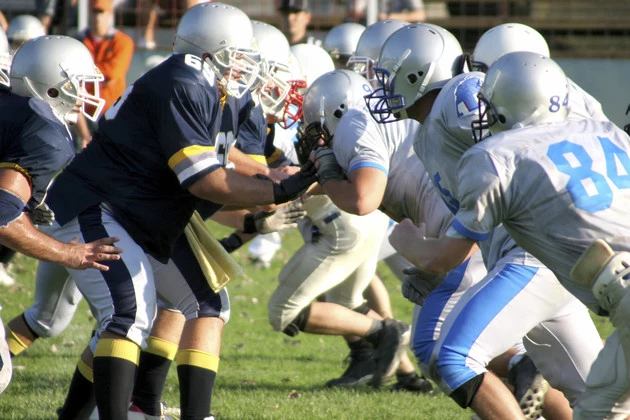
Is football safe for young kids? Here’s how it’s changing in NJ
Pop Warner football has eliminated kickoffs for its youngest players.
A new rule instituted at the beginning of this month specifies that instead of having kickoffs in games for Tiny Mites (5- to 7-years-olds), Mitey Mites (7-9) and Junior Pee Wees (8-10), the ball will be placed at the 35-yard line to start each half and after each score.
“The change is aimed at significantly reducing the amount of full-speed, head-on impact, to make games safer,” said Jon Butler, the executive director of Pop Warner Little Scholars, the organization that governs Pop Warner worldwide.
He said there is no data on kickoffs specifically at youth levels, “but in general the data shows that there is a disproportionate number of injuries on kickoffs, versus any other play.”
Butler noted an Ivy League an study and found kickoffs make up only 6 percent of a typical game, and yet 20-something percent of injuries occur on the 6 percent of those plays.
“With kickoffs, essentially you have 11 kids coming on the kickoff team at full speed, and 11 kids on the receiving team who are mostly motionless,” he said. “We have now changed that.
How safe is football for little guys?
He stressed Pop Warner football, even without this latest rule change, is extremely safe, especially for the smallest, youngest players.
“You see a lot of arm tackles, where they grab a kid by the arm and swing him around till he falls down, or kids running into each other and falling down,” he said.
Butler pointed out Pop Warner limits the type and amount of contact in practice, compared to other youth football leagues.
“We have 87 percent fewer overall injuries in practice, 76 percent fewer concussions in practice.”
He also noted the Datalys Center for Sports Injury Research and Prevention, which compiles injury data for the NCAA, has concluded the statistics are really only valid down to age 11 “because below age 11 there are so few injuries and so few concussions that it’s not statistically significant.”
Additionally, Butler said, Pop Warner now has a rule (since 2010) that specifies when any participant has any type of head injury, the player is removed from play until he or she gets a signoff on, in writing, from a medical professional trained in concussion recognition.
“Certainly team sports instill a lot of very positive things,” he said. “They help confidence and they certainly build teamwork and determination.”
He also said youth football is unique because it’s the only team sport where every person has to do his or her job every play.
“If they don’t, something bad happens, or at least nothing good happens,” said Butler.
He said in sports like basketball, an isolation play is run for the star player — everybody gets out of the way and then he does his thing. In baseball, you get a star pitcher and everybody is picking daisies in the outfield. But in football, everybody has got to do his job.
Contact reporter David Matthau at David.Matthau@townsquaremedia.com.
More from New Jersey 101.5:
More From New Jersey 101.5 FM









